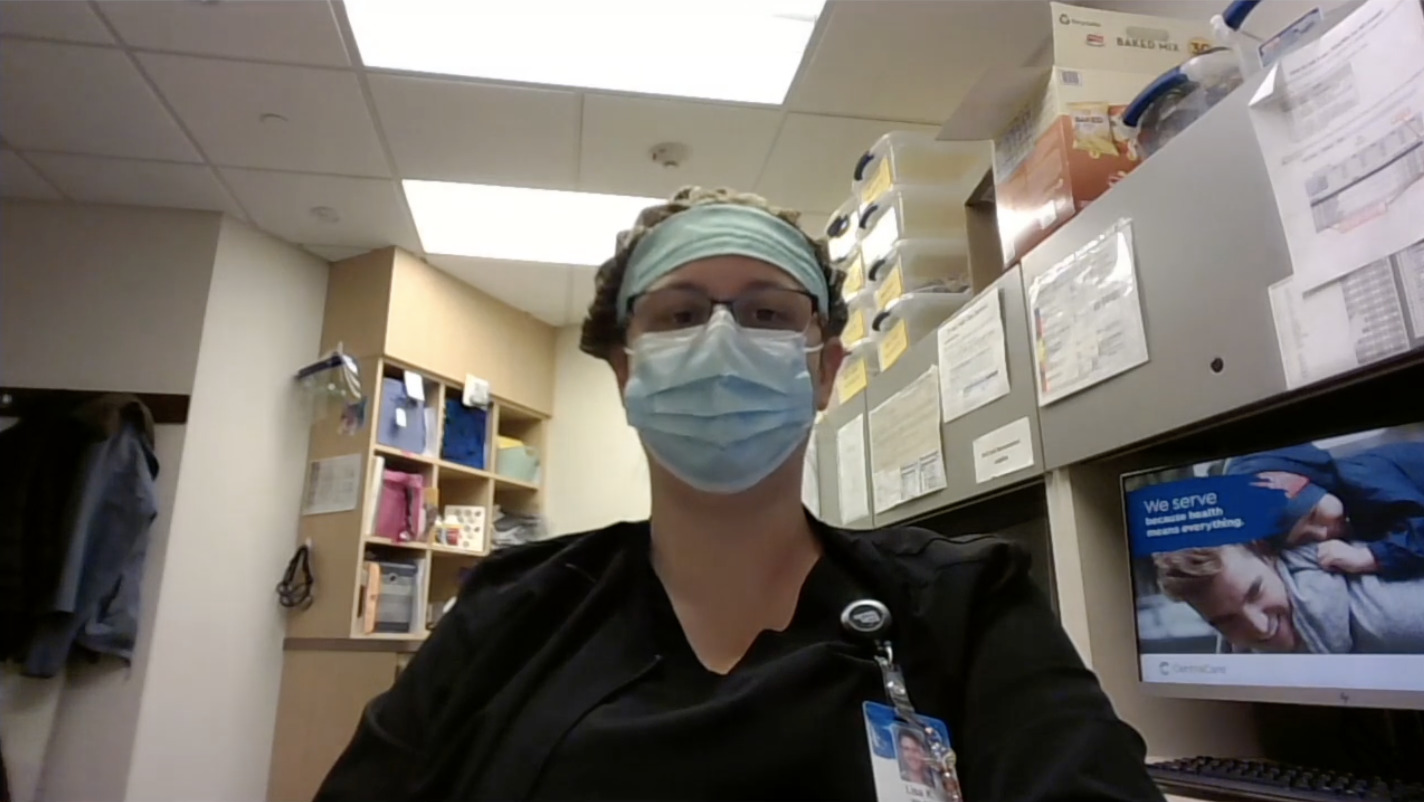Team Intuition Helped Investigate Prescription Fraud
It had the elements of crime fiction: an alert about an odd prescription, a prescriber located 2,000 miles away, and surveillance cameras showing the transfer of controlled substances. But the plot was all too real: someone was engaged in the transmission of fraudulent prescriptions for a popular, and sometimes lethal, party drug. The recent story serves as an instructive case study in how strong systems, a culture of “team intuition,” and swift action by CentraCare team members coalesced to ensure community safety.
On November 16, 2021, Cody Lamek, a Senior Application Analyst in CentraCare’s IT department, received a curious email from an electronic data intermediary company used by the health network for e-prescriptions. “It basically said here’s a list of medications that might have been fraudulently sent to your pharmacy,” he recalls. “My initial thought: somebody hacked into someone’s system.”
My initial thought: somebody hacked into someone’s system.”
Cody lamek, senior application analyst
It was a prescription for the cough syrup promethazine with codeine, which when mixed with soda or alcohol goes by the street names “lean” and “purple drank.” It’s a drug that when abused, can lead to addiction and, in some cases, fatal overdose. And, as it turned out, the prescriber was from California, which was unusual for a prescription being filled at the CentraCare Plaza pharmacy in St. Cloud.
Lamek brought the information to Keith Karsky, Director of Outpatient and Specialty Pharmacy Services. “We had never experienced a scenario like this before, where we received something that wasn’t correct in the sense that it either shouldn’t have been sent to us or somebody hacked into the system,” Karsky says. He brought the information to his fellow members of CentraCare’s Diversion Response Team. The team, led by Clare Jones, Medication Diversion Prevention Nurse, includes Karsky; Senior Pharmacy leadership and representatives from CentraCare’s administration, Legal, Human Resources, Employee Health, and Security departments, initiated an investigation and alerted the Board of Pharmacy, the Drug Enforcement Administration and local law enforcement. Law Enforcement opened an investigation, seeking to identify two people who were spotted on CentraCare surveillance cameras picking up prescriptions.

Then the team did a scan of past pharmacy interactions, identifying one more fraudulent prescription, this one attributed to a provider in Florida, which was issued but never picked up.
CentraCare’s Business Intelligence unit, in an ongoing partnership with Pharmacy, has developed a controlled substance prescribing surveillance platform that regularly scans data in search of potential fraud. Within days of Lamek’s alert, Business Intelligence added the capability to identify out-of-state orders.
Lamek’s team set up a new flag in the electronic ordering system that highlights when prescriptions arrive for controlled substances from providers outside Minnesota. “That doesn’t mean it’s fraudulent,” says Karsky, “but it does mean that we should put a bit more scrutiny into it.”
For Karsky, the situation is a wake-up call. A pharmacist for 34 years, he was a first-hand witness to the transition from paper prescriptions to electronic ones, and he praises the “rock-solid” security measures put in place by electronic medical record (EMR) providers, pharmacy prescription management system providers, and 3rd party processing companies in recent years. “But the one thing that I really take away from this is that with things being electronic, you let your guard down a bit because you feel like everything in this system should be locked down perfectly.”
It really does speak to our epidemic of addiction and to the effort that people will go to obtain those medications in any way they can.”
Clare Jones, Medication Diversion Prevention Nurse
To this day, the origins of these fraudulent prescriptions remain unknown. “It could happen at the doctor’s office,” speculates Karsky. “It could happen where somebody acts like they’re a doctor’s office, purchases an EHR (Electronic Health Record), and goes through the process of using that EHR in a fraudulent manner. Or was it someplace in the electronic transmission of it?” It is uncertain how widespread this fraudulent activity could be across the country.
But the case did give CentraCare a valuable insight: “It did certainly highlight for us that this was a medication of interest,” says Jones. “It really does speak to our epidemic of addiction and to the effort that people will go to obtain those medications in any way that they can. This is potentially criminal activity […] but we also need to remember that this is an individual who’s going through something and potentially needs help. That human side is always in the back of our minds.”
Along with technical tools, the human element played a key role in how CentraCare responded to this threat. Karsky credits “team intuition”—pointing to creative problem-solving all along the way and, in particular, Lamek’s response to that initial note. “We have this culture that when something like that comes up, we can just say, ‘Hey, this just doesn’t look right. Can you put another set of eyes on it?’”
We have this culture that when something like that comes up, we can just say, ‘Hey, this just doesn’t look right. Can you put another set of eyes on it?’”
Keith karsky, Director of Outpatient and Specialty Pharmacy Services
Tegan Buckley, Senior Director of Pharmacy, concurs. “CentraCare invests a lot in our culture and in being on one team instead of thinking of ourselves as separate. So for IT and the Business Intelligence teams to drop what they’re working on and help the Pharmacy team investigate this immediately is phenomenal.”
In the end, the team celebrates its work collaborating to respond to this incident and making changes to hopefully prevent future cases of prescription fraud.







Great work with Cody, Keith, Clare, and the team coming together to ask the questions around new threats to medication and prescribing safety. This shows your dedication and commitment and willingness to respond the the unusual. I feel like you took “see something – say something” and our speak up for safety culture to the next electronic level. Thanks!!